#TaxCredits
Which EVs Still Qualify for Federal Tax Credits?
With the guidance having come in on the United States’ updated EV tax credit scheme, outlined in the so-called Inflation Reduction Act, we now have a pretty good idea of which electric vehicles still qualify. Stringent content requirement stipulations have certainly culled the roster, however, and helped explain why the automotive sector didn’t have any issues with the government taking its sweet time in making decisions regarding content quotas.
There are only about a dozen models that qualify for the full $7,500 tax credit after April 18th, with a few more being eligible for a partial credit of $3,750.
Ford Celebrates EV Still Being Eligible for Tax Credits
On Wednesday, Ford Motor Co. celebrated the fact that its entire electric-vehicle lineup would still be eligible for consumer incentives under the so-called Inflation Reduction Act federal tax credit scheme. But it downplayed that some of those models won’t be eligible for the maximum amount due to stricter EV sourcing requirements pertaining to battery components and critical minerals.
Sen. Manchin Proposes Bill to Force Treasury to Finalize EV Tax Credit Guidance
Despite the United States having an entirely new EV tax credit scheme under the so-called Inflation Reduction Act (IRA), there’s nobody adhering to it right now. That’s because the Treasury Department decided to delay issuing specific guidance on battery matters until March, nullifying any restrictions based on content requirements. While this means more automakers have been able to take advantage of government subsidies, it also means they haven’t been required to follow any of the stipulations outlined in the IRA for 2023.
Senator Joe Manchin (D-WV) believes this is unacceptable and has advanced legislation that would effectively force the U.S. Treasury to do its job.
Japan Issues Warning, Asks U.S. for Flexible EV Tax Credit Scheme
Over the weekend, the Japanese government issued a formal complaint suggesting that the United States’ updated tax credit scheme for electric vehicles could prohibit future investments from the Land of the Rising Sun. Complaints were reportedly directed to the Treasury Department and revolved around the Biden administration’s Inflation Reduction Act and how it seemed at odds with previous efforts to build trade between America and Japan. But things are always a bit more complicated than that and we cannot overstate the relevance of Japanese auto lobbying groups that want the most favorable regulatory terms they can negotiate.
Gas War: Automakers Continue Begging Government for EV Incentives
On Monday, General Motors, Ford, Stellantis, and Toyota Motor North America reportedly asked the United States Congress to lift the existing cap on the $7,500 federal tax credit for electric vehicles. Though automakers petitioning the government for free money is hardly new business.
Stellantis CEO Says Electrification Advanced by Politicians, Not the Industry
Despite Stellantis making formal announcements that it will be investing 30 billion euros ($34 billion USD) into its novel electrification strategy, CEO Carlos Tavares has been making it sound as if the automaker’s plan was crafted under duress. He’s been telling European media that the widespread adoption of EVs is primarily being pushed by politicians who are ignoring the environmental risks and logistical shortcomings.
“What is clear is that electrification is a technology chosen by politicians, not the industry,” he said told the press this week.
Chevrolet Announces $30,000 Electric Equinox at CES 2022
General Motors CEO Mary Barra made a slew of product announcements during CES 2022, with the biggest being an update on the Silverado EV. However, Chevrolet will need to fill out its ranks if it’s to become a totally electrified brand as planned, resulting in the confirmation of electric variants of the Equinox and Blazer.
With modestly sized crossovers and SUVs still gaining ground in North America, Barra believes it makes good sense to electrify a couple in the assumption that the segment will have a larger pool of customers to draw from. But there’s precious little detail about either model, minus GM’s promise to launch both models by 2023 and sell the Equinox EV for around $30,000.
Unfair? Toyota Launches Ad Campaign Opposing EV Tax Credit Scheme
Toyota Motor North America has already voiced its opposition to the proposed EV tax credit scheme tied to the the Democrats’ latest spending bill. This week, it has decided to expand its message by purchasing advertisements in national publications.
Starting Tuesday, Toyota will be launching an ad campaign intended to help bring Americans toward its side of the fence. While the automaker isn’t intrinsically offended by the government-backed incentivizing of electric vehicles, it has taken umbrage with the Biden administration’s insistence that consumers be issued an additional $4,500 incentive for purchasing union-made products. Though the reasoning should be obvious, since the company doesn’t have any unionized facilities in the U.S., the automaker is seeing growing support as the related legislation is stalled on Capitol Hill.
General Motors Asks Government to Change Rules on EV Tax Credits
General Motors is asking the federal government to reset the federal EV tax credit system, effectively requesting a personal favor. As one of the first manufacturers to get an electric vehicle to market that people actually wanted to buy, GM hit the 200,000 cumulative EV sales cap in 2018. While customers could still get money back through April of 2020, the automaker exhausted its allotment of $7,500 subsidies before most of its rivals.
Now it wants to see the government press the reset button on the program under a pretext of fairness. GM executives are claiming that companies investing in electrification shouldn’t be handicapped by not getting additional money from taxpayers. It seems anything but fair, frankly. Though it should be said that all-electric models have a poor track record in terms of profitability. The Chevrolet Bolt certainly didn’t make any money, however, GM CEO Mary Barra has said new versions of the model will be capable of turning a profit.
Biden Planning to Pour $100 Billion Worth Of Rebates Onto EVs
The Biden administration expanded on its $174 billion proposal to boost electric vehicle sales on Thursday, suggesting that the United States government make it rain money on those purchasing EVs.
Technically a part of the $2.3 trillion infrastructure plan, which has been expanded to include jobs and numerous environmental projects, the proposal makes a lot of special exemptions for alternative energy vehicles backed by large financial commitments. $100 billion will be set aside for new consumer rebates, potentially opening up the door for manufacturers that have already exhausted their quota of federal tax credits linked to zero-emission cars.
Congress Says Nay to Expanding EV Tax Credits
Prior to Congress taking the rest of the month off to relax and presumably gear up for an impeachment trial, they first had to settle their year-end tax package. Automakers were hoping that would include an extension of electric vehicle tax credits, but it was a doomed proposition.
An extension was initially included in the bipartisan Driving America Forward Act, which manifested this spring, before being incorporated into the Democrat-friendly GREEN Act (Growing Renewable Energy and Efficiency Now). That got it through the House but not the Republican-controlled Senate, which wasn’t interested.
While the current $7,500 EV tax credit remains in place, Tesla and General Motors have both reached their 200,000-vehicle quota. Naturally, they (and other automakers) lobbied for an expansion, one which would have seen a $7,000 credit kept in place until a manufacturer sold 600,000 electric automobiles. Several Republican lawmakers openly shared their distaste for the plan, though few more openly than Senator John Barrasso of Wyoming, who had an opposing bill — called the Fairness for Every Driver Act — interested in reducing subsidies on the grounds that EV credits have already done enough.
Say Goodbye to EV Tax Credits Under New GOP Tax Plan
It’s the last thing Elon Musk wants to hear and it’s likely not something General Motors will be too pleased about. Contained within the tax plan introduced by House Republicans Thursday is the elimination of a huge driver for electric vehicle sales — the $7,500 EV tax credit.
Automakers, and especially the two mentioned above, already stood to lose their credits in the near future (there’s a 200,000-vehicle-per-manufacturer cap), but the new tax bill would see the buyer incentive permanently removed, not renewed, as many had hoped. Such a move could slam the brakes on a still-fledgling segment in the U.S.
Early EV Buyers Win, But the Segment Stands to Die Without Tax Credits: Report
So far, there’s no evidence the Trump administration plans to extend the federal tax credit incentive for the purchase of electric and plug-in vehicles.
Designed to kick-start the fledgling technology, the credits — totaling up to $7,500 per vehicle — will run out after automakers finish selling their first 200,000 eligible vehicles — a date that could occur as early as next year for some companies. This means a segment still as embryonic as the infrastructure meant to serve it could soon bite the dust.
A recent report from Edmunds predicts what will happen if the credits die, using a cancelled state credit as a crystal ball. Despite the hype around EVs, those incentives are an intravenous bag keeping the patient alive.
A Worst-case Scenario for Green Types Would Put EV Sales Predictions to the Test
Politicians walk back policy promises as frequently as Ram announces special edition 1500s, so it’s not unwise to take campaign pronouncements with a big grain of salt.
Environmentalists and those close to the electric car sphere aren’t happy right now, as Donald Trump’s ascendancy to the Oval Office could put the kibosh on green ambitions. There’s talk of a rollback of fuel economy targets, of California no longer being allowed to be “special” (at least, when it comes to auto industry regulation) — basically, the sky could be falling, but they aren’t sure if it is yet.
Let’s take that frenzied speculation to its natural conclusion. Say the sky falls, environmental regulations are left gutted like tuna on a wharf, and the government incentives to buy an electric vehicle dry up.
Can EVs stand on their own?
Colorado Now the Best State for Tax Dodgers to Buy EVs
Electric cars take considerable flack from average consumers for being far too expensive in comparison to gas-powered competitors — and that’s before you realize it takes years to make that money back in fuel savings. Combine those two points with range anxiety and you’ve summarized the major hangups normal folk have with electric-vehicle ownership today.
The U.S. Federal government offers tax incentives, in the form of income tax rebates, to ease the monetary pain of EV ownership for average buyers. Individual states have joined the rebate incentive bandwagon, too. However, the state of Colorado is changing its tune, and will now gift you an incentive before you even drive off the dealer lot — no tax return required.



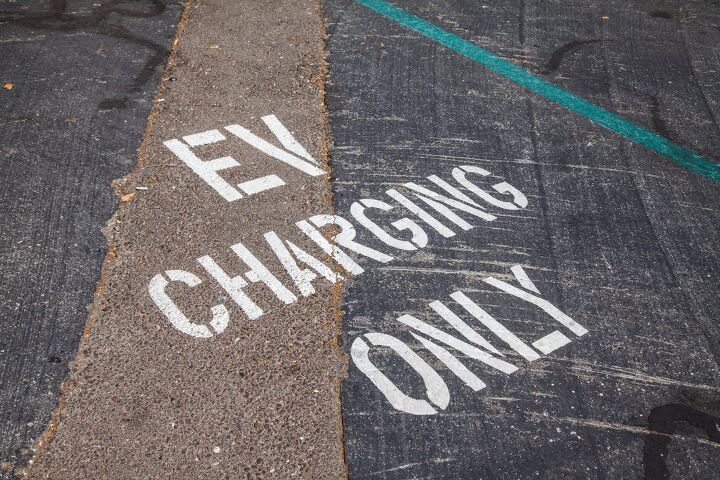
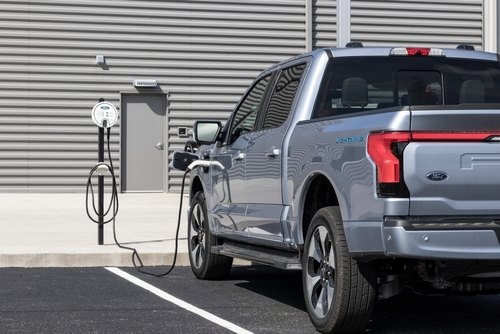
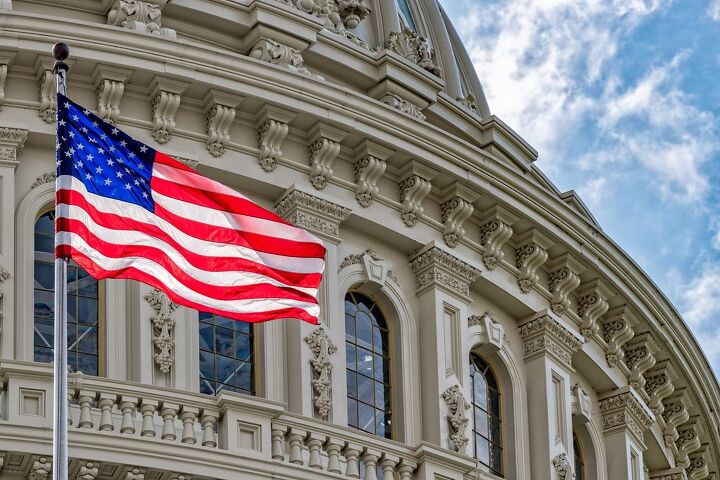



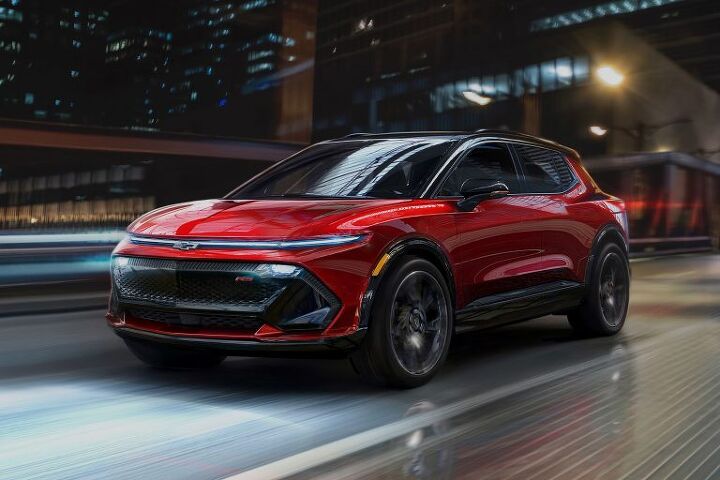
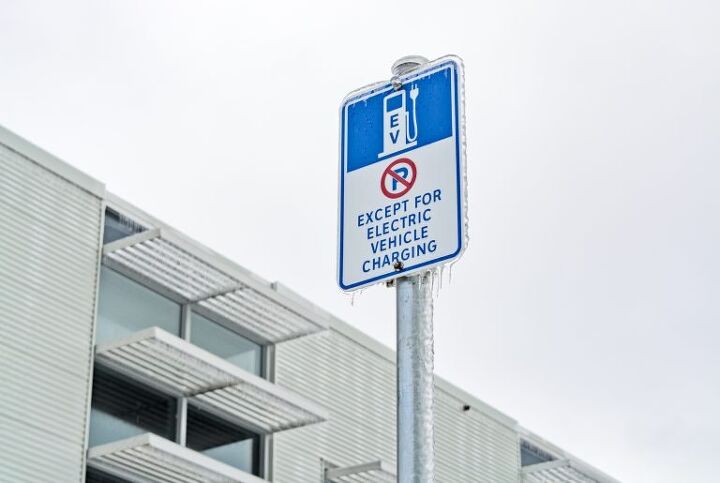


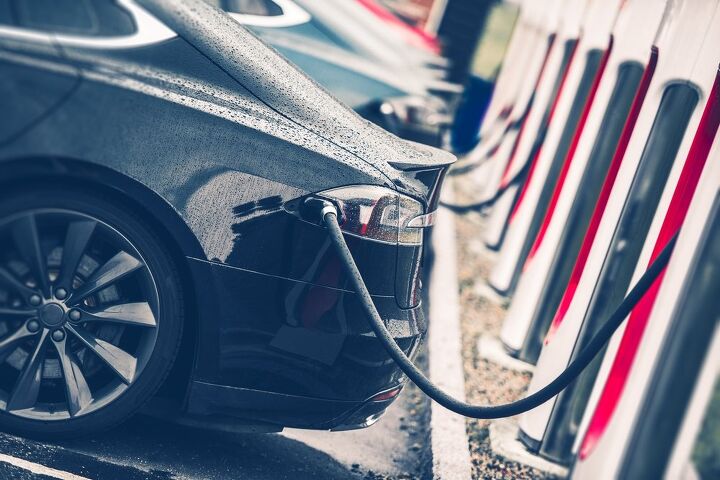


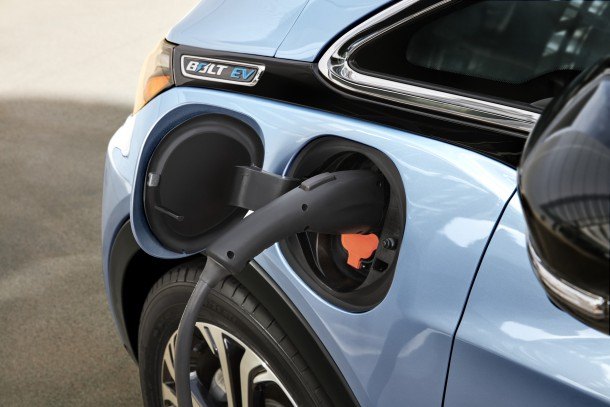













Recent Comments